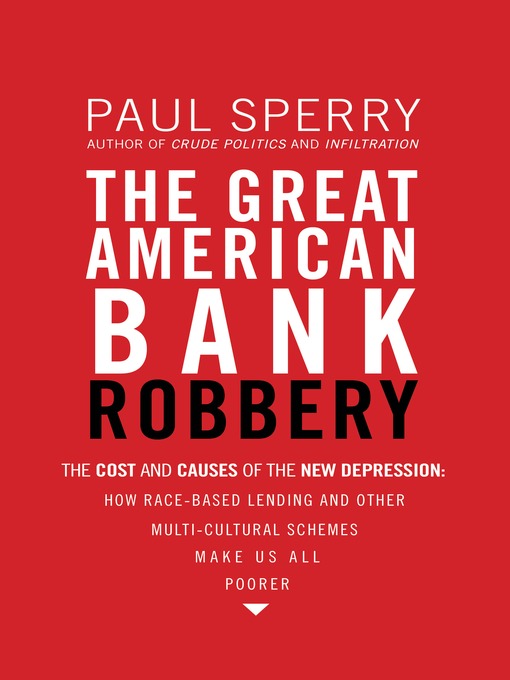The average American household lost $123,000 in wealth during the financial crisis. The Financial Crisis Inquiry Commission says Wall Street stole it, appearing to confirm the narrative told by countless politicians, economists, and pundits.
The verdict seems unanimous. In fact, it's unanimously wrong. The masterminds behind the biggest heist in history were radical social engineers on Pennsylvania Avenue, not financial engineers on Wall Street.
The Great American Bank Robbery offers the first careful and thorough analysis of public policy's role in the calamity. With stinging clarity, it indicts the real culprits––many of whom have returned to the scene of the crime in Washington. Now they're planning an even bigger heist in the name of "economic justice."
Robbery also answers why:
- Asian–Americans weathered the mortgage crisis better than other groups, including whites.
- Alan Greenspan shares blame for the crisis for reasons that have nothing to do with interest rates.
- Minorities accounted for half the new homeownership growth during the housing bubble.
- 25 of the 33 counties with the nation's highest foreclosure rates are located in California, Florida and Nevada.
- Even nonbank mortgage lenders unregulated by bank anti–redlining laws eased lending standards and waded into the risky subprime market.
- Bankers earned a reputation for lending discrimination, and why they still can't shake it and, now for the first time, must collect and report data on minority small business lending.
The debate over what caused the crisis is heating up again, as new Republican leaders in Congress call for repealing Democratic financial reforms aimed at Wall Street and dismantling Washington–based Fannie Mae and Freddie Mac, which escaped reform.
Veteran financial newsman Sperry's seminal research and hard–hitting reporting blows the lid off the subprime scandal. Robbery contains more than 50 pages of footnotes, data tables, and charts backing up its numerous revelations.

